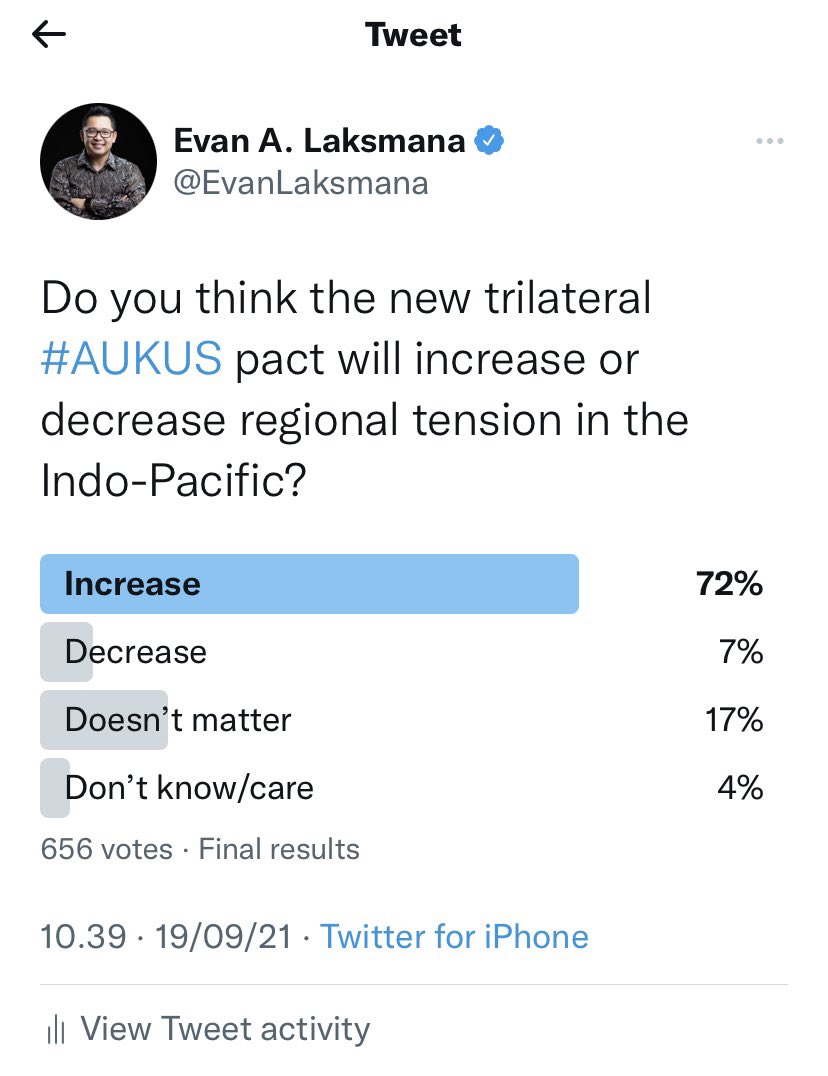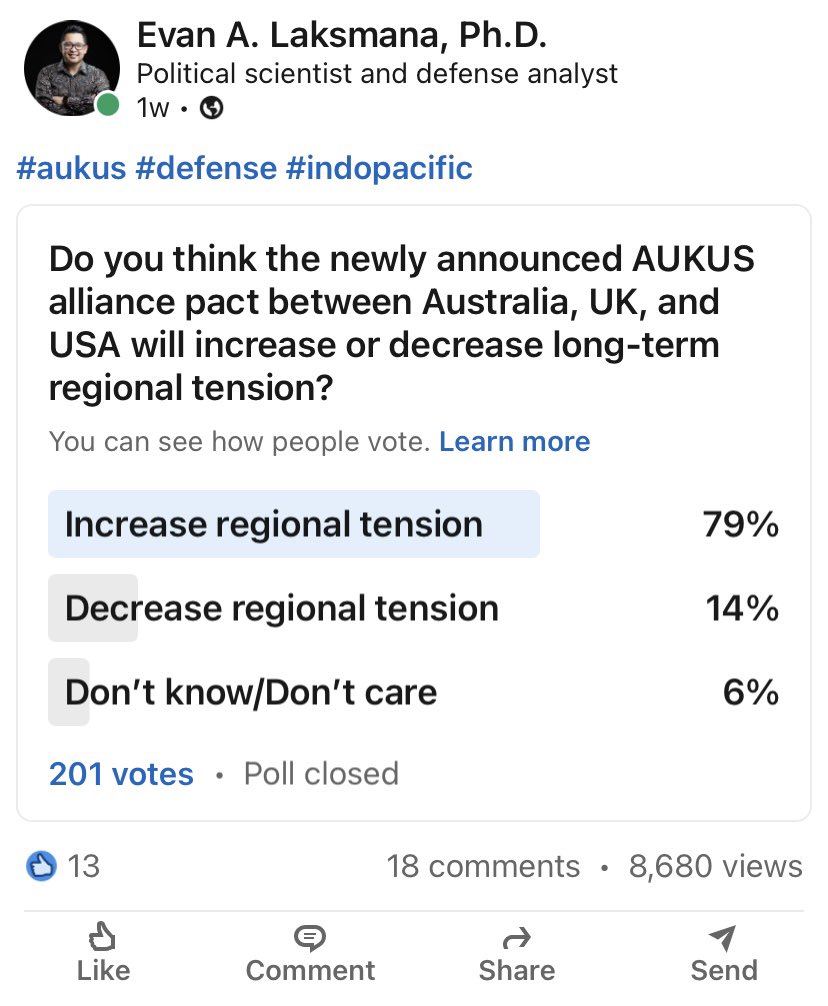Some initial reactions on AUKUS plans, mainly from an Indonesian perspective👇
Brief 🧵 on key issues and questions:
Brief 🧵 on key issues and questions:
1) reaction will be divided, publicly and in private.
Publicly, officials are unlikely to come out strongly one way or the other. We know we cannot offer a serious alternative to the regional flux. We also know that regional countries are rightly developing non-ASEAN options.
Publicly, officials are unlikely to come out strongly one way or the other. We know we cannot offer a serious alternative to the regional flux. We also know that regional countries are rightly developing non-ASEAN options.
So publicly, we might see something along the lines of “we hope all countries can exercise restraint and we welcome efforts to strengthen regional stability”. Some might sprinkle "ASEAN Outlook on the Indo-Pacific" too somewhere. What else can we say?
2) privately, more than a few are concerned with:
- strategic flux: will AUKUS lead to more or less regional tension? Not sure if there’s a clear answer one way or the other
- strategic overcrowding: extra-regional powers getting more entangled with regional military affairs
- strategic flux: will AUKUS lead to more or less regional tension? Not sure if there’s a clear answer one way or the other
- strategic overcrowding: extra-regional powers getting more entangled with regional military affairs
- nuclear trajectory: how likely is it that 🇦🇺 “nuclear taboo” could change? how quickly can one move from having SSN to SSBN?
- cross-hairs: given 🇮🇩 geostrategic location, if there’s an increase in likely US-PRC conflict, how would we get caught in the middle, literally?
- cross-hairs: given 🇮🇩 geostrategic location, if there’s an increase in likely US-PRC conflict, how would we get caught in the middle, literally?
Overall, this is a deeper problem of 🇮🇩 becoming a "strategic spectator": what can we do other than watching from the sidelines--perhaps w/ occasional ASEAN cheer--as its regional environment continues to deteriorate and regional states are out for themselves?
3) Given AUKUS scope & impact, it’s not surprising that Jakarta was notified/alerted/briefed (not necessarily “consulted” as some would like but that’s a separate debate). RI-AUS bilat ties are perhaps the strongest we’ve seen in decades.
The big question (which I asked last year following 🇦🇺 strategic update):
what happens when there is a mismatch/misalignment between bilateral ties and regional order?
I wonder whether AUKUS will get us closer to a clearer answer, bad or good
<END>
what happens when there is a mismatch/misalignment between bilateral ties and regional order?
I wonder whether AUKUS will get us closer to a clearer answer, bad or good
<END>
Official response by @Kemlu_RI 👇🏻
https://twitter.com/evanlaksmana/status/1438685230664077314
"Experts note that middle power Australia has been known to take ASEAN's position for granted, and even tried to undermine or bypass ASEAN in its diplomatic initiatives." #AUKUS 

“Indonesia’s concern over AUKUS represents broader worries about great-power politics that has left it feeling powerless” bloomberg.com/news/articles/…
Former FM Natalegawa, "the inception of AUKUS, like the revitalization of Quad before it, was a reminder for ASEAN of the cost of its dithering and indecision on the complex and fast-evolving geopolitical environment." 
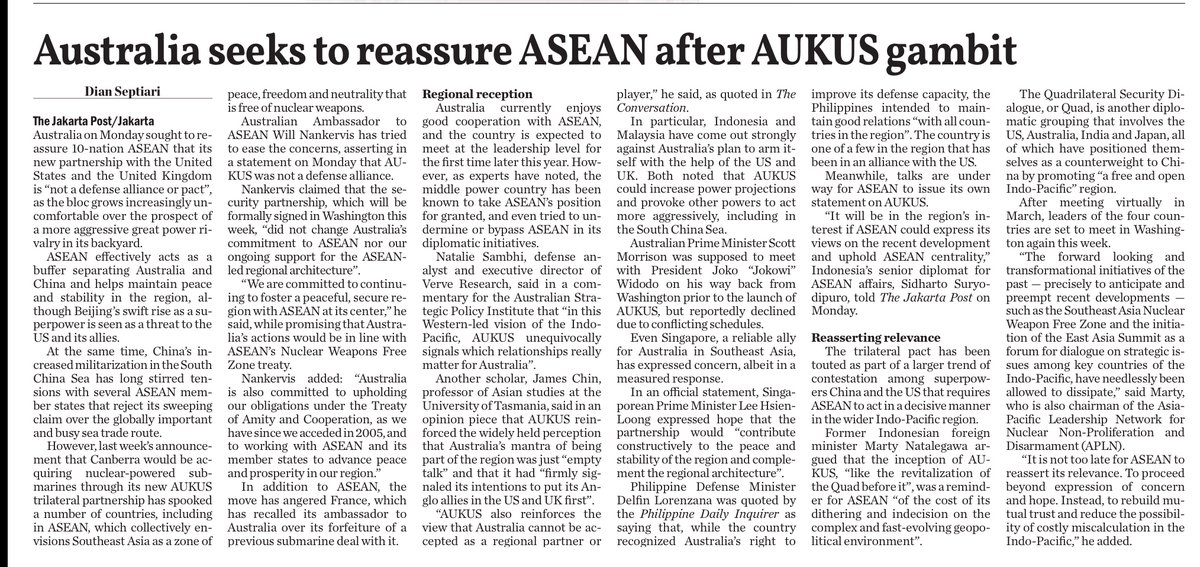
Rector of Indonesian Defense University: “it is clear that the Indo-Pacific is in the era of hot peace because Australia is one step away from equipping its submarines with nuclear weapons”. 
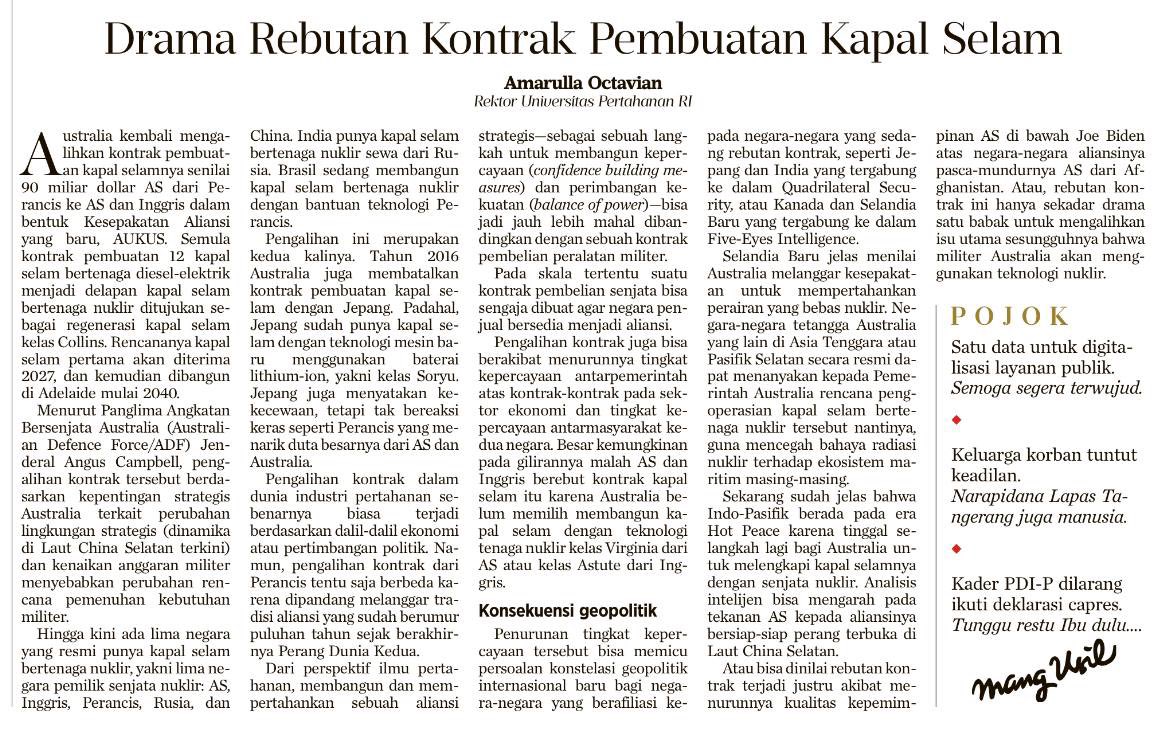
Former Indonesian Navy Chief of Staff, "Indonesia, as well as ASEAN, should have a stronger stance and demeanor as the regional arms race and tensions are rising towards a dangerous level." 
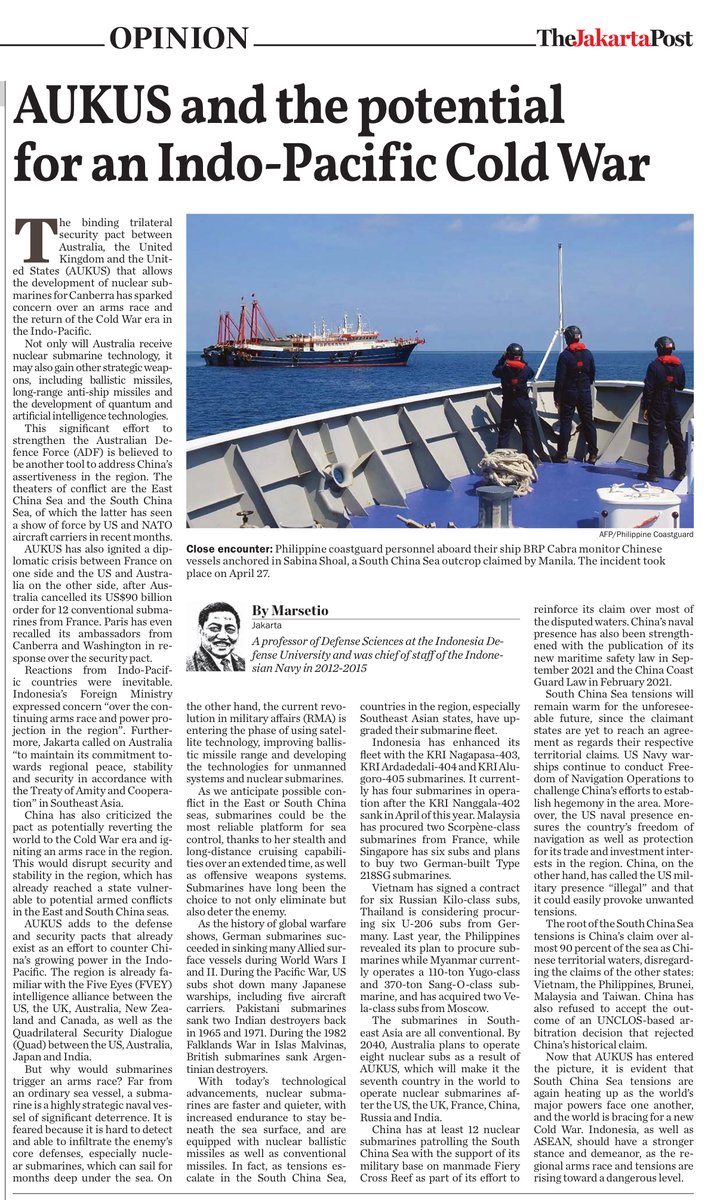
• • •
Missing some Tweet in this thread? You can try to
force a refresh

